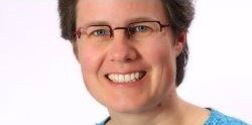Title:
Understanding the electronic structure and improving the stability of metal halide perovskites for optoelectronics.
Speaker: Shuxia Tao (CCER)
Time: June 27, 2019, 10:00–11:00
Location: Differ, Alexander-zaal
Metal halide perovskites has attracted enormous attention in the scientific community recently, due to breakthroughs in perovskite optoelectronics, mainly in photovoltaics and LEDs. Despite great progress have been made in their use in perovskite solar cells and perovskites LEDs, fundamental understanding of their unique optoelectronic properties and their instability are still missing. Such questions include: why their band gaps are tunable; what is the origin of the variations in the energy levels when their composition is changed; why some compounds are more stable than others; how to stabilize the compounds.
We, Computational Materials Physics group, focus on addressing such fundamental questions by using Density Functional Theory calculations and several other theoretical tools. In this talk, I will present two of our recent publications, giving an overview of our progress in answering such questions. I will also give an outlook of what are our next challenges and what types of computational methods we are going develop/use to meet our new challenges.
References
1. S. Tao, I. Schmidt, G. Brocks, J. Jiang, I. Tranca, K. Meerholz, S. Olthof, Absolute energy level positions in tin and lead halide perovskites, Nature Communications, 10, 2560 (2019).
2. N. Li, S. Tao, Y. Chen, X. Niu, C. Onwudinanti, G. Brocks, Q. Chen, H. Zhou et al, Immobilizing cations and anions for stable halide perovskite solar cells through chemical bonding enhancement with fluorides, Nature Energy, 4, 408–415 (2019).
The CCER seminars are aimed at researchers interested in computational approaches to (energy) research. The seminar is small-scale, typically 15 participants, and interactive, offering lots of room for discussion. If you don't have access to the DIFFER building but would like to attend, just This email address is being protected from spambots. You need JavaScript enabled to view it..






